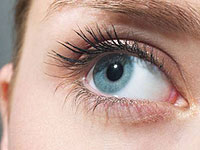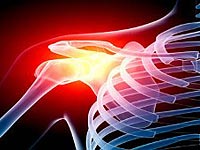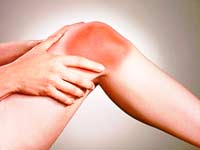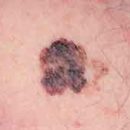When immediately or successively several joints are inflated, it is called polyarthritis. Polyarthritis arises from a variety of reasons, so it also flows in different ways.
Content
Causes and types of polyarthritis
Polyarthritis may arise against various infectious diseases (viral hepatitis, gonorrhea, dysentery, etc.) - infectious polyarthritis, metabolic disorders (gap) - exchange or crystalline polyarthritis, allergies including auto-allergies (allergies on the body's own tissues), local injury, etc. However, the causes of rheumatoid (system) polyarthritis have not yet been established yet.
What happens in the joints at a polyarthritis
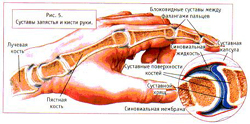 The tissues of the joints, including the synovial sheath (the shell, which surrounds the joint) is equipped with numerous blood vessels and nerve endings, which gives them the opportunity to instantly respond to infectiousness on any inner or external infectious polyarthritis infection or falls into the joint with blood and then seriously develops, Sometimes purulent lesions of the joint, or with blood in the joint, the products of the livelihood of microorganisms fall, in which case the process proceeds easier and usually disappears under the influence of treatment.
The tissues of the joints, including the synovial sheath (the shell, which surrounds the joint) is equipped with numerous blood vessels and nerve endings, which gives them the opportunity to instantly respond to infectiousness on any inner or external infectious polyarthritis infection or falls into the joint with blood and then seriously develops, Sometimes purulent lesions of the joint, or with blood in the joint, the products of the livelihood of microorganisms fall, in which case the process proceeds easier and usually disappears under the influence of treatment.
In exchange (crystalline) polyarthritis, inflammation is caused by salts crystals, which are deposited in the joints and injured the synovial shell.
With rheumatoid polyarthritis in the formation of the disease, all links of the immune process are involved, genetic factors and environmental factors. One of the signs of rheumatoid polyarthritis is inflammation and growth of the shell cells into which the joint (synovial shell) is concluded. There is also a rapid growing of small vessels, a special (granular) fabric is formed, which in time penetrates cartilage and destroys it. This leads to impaired joint function.
Infectious polyarthritis
Infectious polyarthritis may occur against the background of any infectious process - brucellious, tuberculous, gonorrheal polyarthritis, etc. Typically, the process is significantly improved in the treatment of the underlying disease. But any polyarthritis, if it does not heal in time, is inclined to chronic flow, which means to violate the functions of the joint.
Crystal polyarthritis
Crystalline polyarthritis are characterized by a violation of metabolism, as a result of which crystals of various salts are deposited in the joints. So, when gouging due to a reduced removal of uric acid, its crystals (urates) are deposited, which have a needle shape, they irritate the tissues of the joints, causing an inflammatory process. Sometimes this process (gouty attack) is only once in life, in other cases repeatedly repeated, leading to the deformation of the joints.
Rheumatoid polyarthritis
Rheumatoid polyarthritis is a general (systemic) chronic, often progressive disease, which is characterized by a multiple inflammatory lesion of joints, not related to any infection. With rheumatoid polyarthritis, connective tissue is affected, so this disease is called systemic. Often in the process are involved in the internal organs (heart, vessels, kidneys). It is very important to know about the early signs of rheumatoid polyarthritis, since the outcome of it largely depends on the timely treatment.
A rheumatoid polyarthritis usually begins: Nest and non-permanent pain and swelling of the joints appear, which are often associated with a weather change, quickly passing morning stiffness, fatigue, sometimes weight loss, sweating, a slight temperature rise. Rheumatoid polyarthritis proceeds in different ways: from a minor lesion of one or two large joints without a pronounced violation of their functions to the so-called septic form, accompanied by exhausting fever and lesions of internal organs. But the small joints of the brushes and stop are affected.
It often occurs atrophy (drying) muscles located near the affected joints. The course of the disease gradually progresses, the joints are deformed, cease to function correctly. Muscle tendons are involved in the process, muscle mass decreases. The brush acquires the shape of the lasts with the deviation of the fingers to the side. Small joints are affected on the foot, flatfoot is formed, the deformation of the toes and their deviation to the outer side. In the elbow area, you can adversely tight painless nodules. Due to the damage to the nerve trunks, numbness is developing, burning, angitancy in the limbs.
Forecast with polyarthritis
In general, the diagnosis and, accordingly, the prescribed treatment is made in a timely importance, and, accordingly, properly assigned treatment, since all polyarthritis are prone to chronic flow, which means that there is a persistent violation of the function of the joint, leading to disability.



